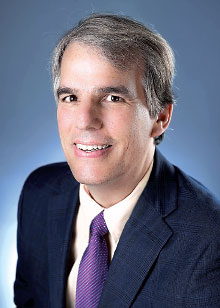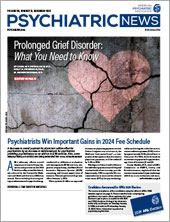Certain groups of health professionals may have an increased risk of dying by suicide compared with individuals who work outside of health care, a
study in
JAMA has found. Those with the highest risk include health care support workers, registered nurses, and health technicians. The study also found that the relative increase in suicide risk posed by health care work was greater for female than male health care professionals.
Mark Olfson, M.D., M.P.H., the Elizabeth K. Dollard Professor of Psychiatry, Medicine and Law and Professor of Epidemiology at Columbia University Medical Center and colleagues examined data from 176,000 health workers and 1,666,000 non-health workers aged 26 years or older. The participants were surveyed in 2008 as part of the American Community Survey and followed for cause of death through 2019.
Health workers were categorized as follows:
•
Other treating or diagnosing health care workers, including dentists, nutritionists, pharmacists, and physician assistants
•
Health care support workers, including nursing, psychiatric, and home health aides
•
Social or behavioral health workers, including social workers, counselors, psychologists, and other community and social service specialists
After the researchers adjusted for sociodemographic characteristics, they found that health professionals had a 32% higher risk of dying by suicide during the study period compared with non-health care workers. Health care support workers, registered nurses, and health technicians had an 81%, 64%, and 39% higher risk, respectively. However, the researchers found no significant increase in risk for physicians (including psychiatrists), social/behavioral health workers, or other health care diagnosing or treating professionals compared with non-health care workers.
“It is not known why some health care worker groups, but not others, are at increased risk of suicide,” Olfson told Psychiatric News. “It is possible that the increased risks experienced by registered nurses are related to their stressful tasks of caring for severely ill individuals with little control over heavy workloads and patient outcomes. Some registered nurses have inconsistent work schedules that may contribute to irregular circadian patterns. Short sleep cycles can also increase the risk of suicidal thoughts and behaviors. Finally, access to opioids and other potentially lethal medications can contribute to suicide risks among vulnerable individuals.”
He added that the increased risk in health care support workers is also not understood.
“However, we know that these workers are engaged in low pay, repetitive, and strenuous work, with typically little job security or opportunity for advancement,” he said.
Olfson noted that the greater suicide risk among women across health care occupations is consistent with findings in previous studies of death by suicide among physicians. He explained that although the reasons for the gender difference in risk are not known, there is evidence that compared with their male peers, female health professionals spend more time in direct clinical care and are more often mistreated; they are also more likely to develop insomnia, report lower job satisfaction, and experience burnout.
“Overall, as health care professionals, we need to do a better job of taking care of our own,” Olfson said. “This means improving detection and treatment of health care workers who are experiencing mental health problems and crises.”
Olson encouraged efforts to increase awareness among health professionals of the early warning signs in one another, such as the following:
•
Discussion of self-harm, feeling hopeless, or feeling like a burden to coworkers
•
The appearance of extreme mood swings or outbursts of anger or sadness
•
Social withdrawal or isolation
Olfson highlighted the need for accessible, confidential mental health care and mental health resources to manage crises and provide ongoing treatment.
“To be confidential, mental health care should be provided by professionals who are not affiliated with the health care organization where the health care worker is employed,” he said.
There may also be a need for a broader cultural change within health care settings, Olfson added.
“Some physicians and other health care workers in leadership roles work in settings that reward high-achieving, perfectionistic, and compulsive personality traits,” he explained. “This can lead these health care workers to become somewhat rigid in their thinking, excessively devoted to their work, or have difficulty taking time off from work. These are qualities that could contribute to poor self-care and might delay recognition of the need for help during a suicidal crisis.”
This study was supported by National Heart, Lung, and Blood Institute and National Institute on Aging interagency agreements with the U.S. Census Bureau. ■

